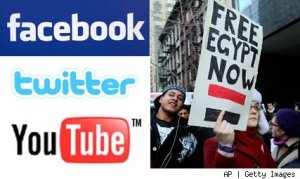Condensing sixteen weeks of learning into two paragraphs is not an easy task. The best way to begin defining digital diversity is to separate the term. Digital- Relating to or using signals or information represented by discrete values (digits) of a physical quantity, such as voltage or magnetic polarization. Diversity- The state of being diverse; variety. So digital diversity is variety in any digital sense. Digital can be applied to any sort of digital technology, phones, computers, TV. Diverse TV programming, the diverse array of people that use mobile phones or access the internet, the diverse cultures that people bring to the internet to create one global internet culture are all a part of digital diversity. However, some people feel that digital diversity has created a new form of prejudice, the digital divide. Westernized nations have by far the most access to technology and send their waste to poor nations harming the locals and surrounding them with piles of useless computers.
To be put simply, digital diversity is the numerous forms of digital media that are available to the diverse people, groups of people and cultures that use them. These people’s usage has created a global culture that is constantly evolving as connectivity and digital prominence becomes more widespread.


